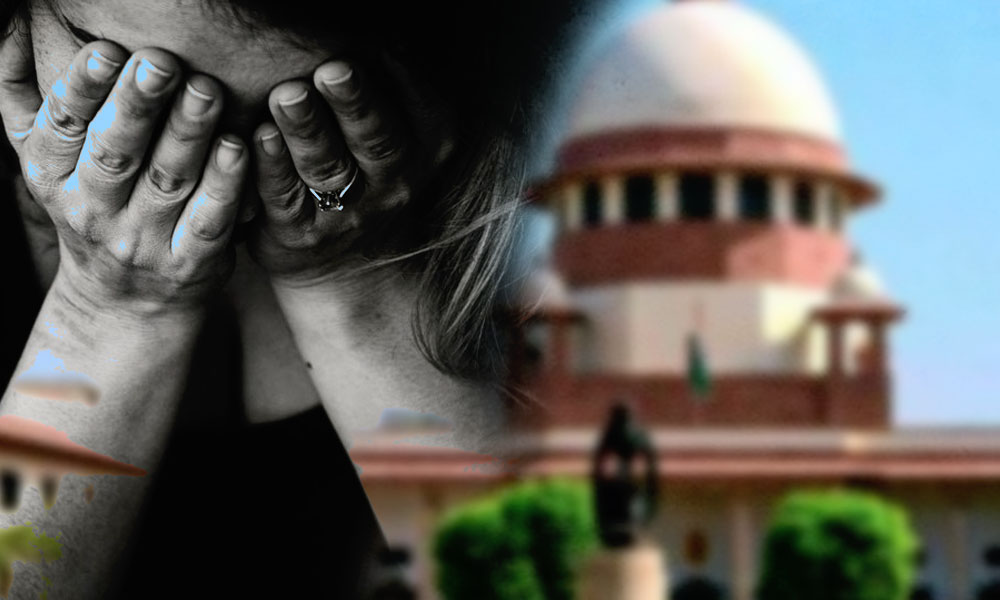
Image Credits: Financial Express
'Wife Entitled to Stay At Her In-Laws' House': Supreme Court
Writer: Palak Agrawal
Palak a journalism graduate believes in simplifying the complicated and writing about the extraordinary lives of ordinary people. She calls herself a " hodophile" or in layman words- a person who loves to travel.
India, 16 Oct 2020 4:33 AM GMT | Updated 16 Oct 2020 4:37 AM GMT
Editor : Prateek Gautam |
A free soul who believes that journalism, apart from politics, should stand for social cause and the environment.
Creatives : Rajath
A free spirit who find meaning in life with the virtue of creativity and doing job par its excellence, animal lover and traveller by heart.
The three-judge bench headed by Justice Ashok Bhushan reinterpreted the definition of 'shared household' to mean that the wife of domestic violence has the legal right in the shared property of the family and also in the ancestral house of her mother-in-law.
In a significant verdict, the Supreme Court on Thursday, October 15, said that the daughter-in-law has the right to live in her husband's parents' house under the Domestic Violence Act, 2005.
The apex court stated domestic violence inflicted on women is "rampant" in the country and they are subjected to violence in some form or the other on an everyday basis. It termed the 2005 law on domestic abuse as a "milestone" and observed that the wife gets a 'shared household' of the joint family.
The top court said a woman resigns her fate to the never-ending cycle of enduring violence and discrimination as a daughter, a sister, a wife, a mother, a partner, or a single woman in her lifetime.
The three-judge bench headed by Justice Ashok Bhushan reinterpreted the definition of 'shared household' in Section 2(s) of the Domestic Violence Act to mean that the wife of domestic violence has the legal right in the shared property of the family and also in the ancestral house of her mother-in-law.
"The reason why most cases of domestic violence are never reported is due to the social stigma of the society and the attitude of the women themselves, where women are expected to be subservient, not just to their male counterparts but also to the male's relatives," a bench headed by Justice Ashok Bhushan observed, reported NDTV.
It further said that a number of factors including non-retaliation and submission by women against abuse, absence of appropriate laws addressing women's issues, ignorance of the existing legislation enacted for them, and social stigma make them vulnerable.
"In both the proceedings, no emergency relief/reliefs is/are available to the victim. Also, the relationships outside the marriage were not recognized. This set of circumstances ensured that a majority of women preferred to suffer in silence, not out of choice but of compulsion," the bench, which also comprised R Subhash Reddy and M R Shah, stated.
It said "the progress of any society depends on its ability to protect and promote the rights of its women. Guaranteeing equal rights and privileges to women by the Constitution of India had marked the step towards the transformation of the status of the women in this country."
The observations came in a judgment in which the top court held that the relief granting right to a residence to a married woman under the domestic violence law by a criminal court is "relevant" and can be considered even in civil proceedings seeking her eviction from the matrimonial home.
 All section
All section














